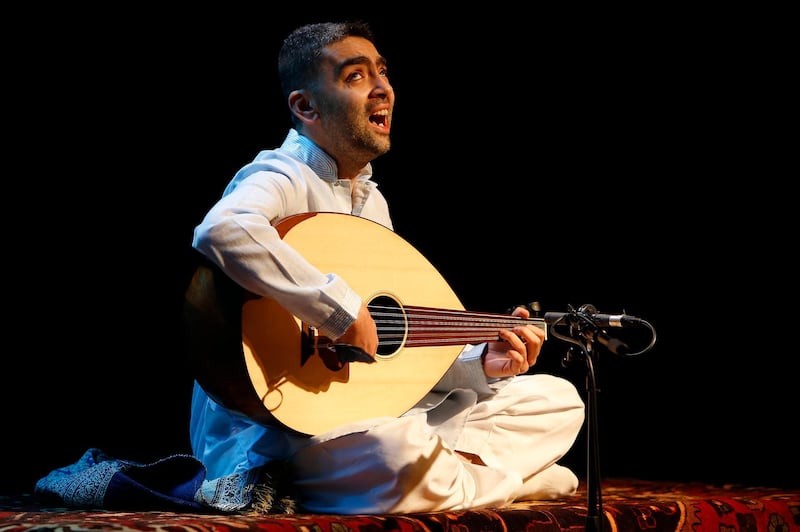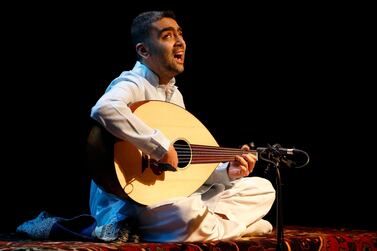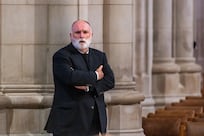Mustafa Said savoured the experience of performing at the inaugural Aga Khan Music Awards. The event was held last weekend in Lisbon, Portugal, with the awards honouring musicians who create works that preserve the cultural traditions of countries steeped in Islamic heritage.
The Egyptian oud player was one of 14 finalists who competed for the prestigious performance prize, which required them all to perform a 25-minute set in front of an audience and a panel of judges. Said, 36, was quiet before taking to the stage, and it was only after he was named the winner that he visibly relaxed.
In addition to receiving a trophy from the Ismaili spiritual leader and awards benefactor, the Aga Khan, Said received a share of the $500,000 (Dh1.8 million) prize. Speaking to The National before he returned to Cairo, he said he approached the competition with an open mind.
Said will travel to the UAE this weekend to talk about his career in the Ma3azef Symposium on Arabic Music, which will be held on Friday and Saturday at the Sharjah Art Foundation.
How does it feel to win the performance prize at the inaugural Aga Music Awards?
I feel very honoured, of course, and this is not something that you can or should expect. But I will tell you one thing – from the beginning I told myself that I was coming to the awards not to play, but to listen. I came to meet and listen to all these other artists and that is a great experience.
What do you think about the awards’ mission to shed light on traditional music from the Islamic world?
It is very important, and we all have some kind of role to play in achieving that aim. The awards are a great start but I also have a job to do as a musician, and that is to present the music in a way that is listenable to people.
You also try to raise awareness of traditional Arab music with your group, the Asil Ensemble. Do you feel there is an audience for the music you play?
Absolutely. I think that people are definitely interested in this kind of music. I experience this in the many shows that I play, as well as the new groups that have formed, and who are trying to do what the Asil Ensemble does. I don't mind that at all. This is all a good thing.
What is needed to support the growth of this music style? Is it more investment, more listeners, or a more curious public?
The first two things you mention will result in the third. More investment will result in more listeners for this music. And when they hear the music, they will become more curious to find out more.
Your set consisted of your takes of Sufi as well as traditional songs. How did you decide what to play for the judges?
I didn't think about it too much, to be honest. I decided I would play the way I normally played and approached the whole thing like I would an ordinary concert. I played a few of my original compositions and I enjoyed myself on stage. I was happy on stage, and because of that I think the people I was playing for felt the same way.
As well as composing and performing, you are an oud instructor to a host of students from across the Arab world. How would you describe your style as a teacher?
I don't approach teaching from a purely academic way, and instead build strong relationships with my students. It is really them that who would give you a more accurate description of my teaching style







